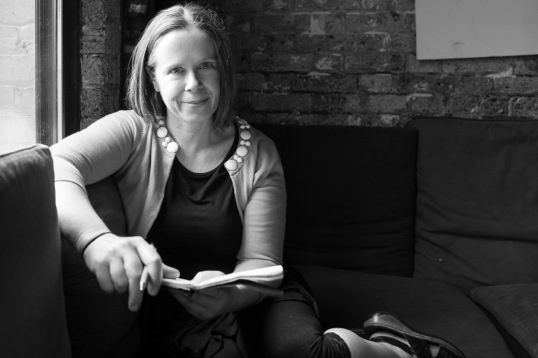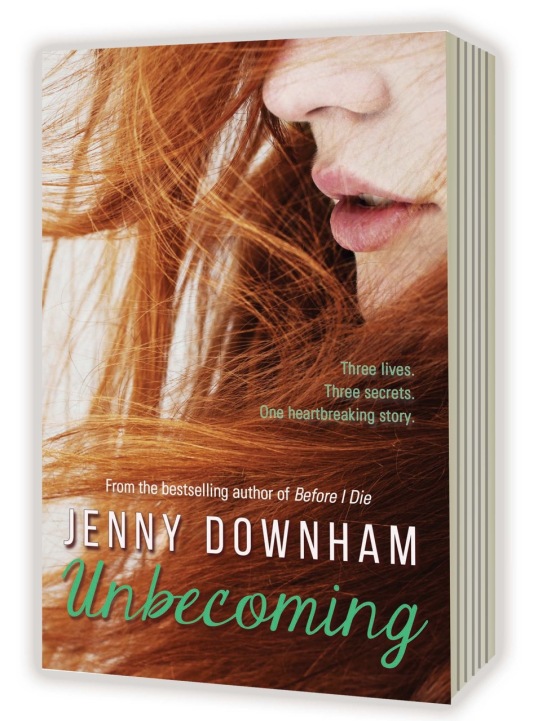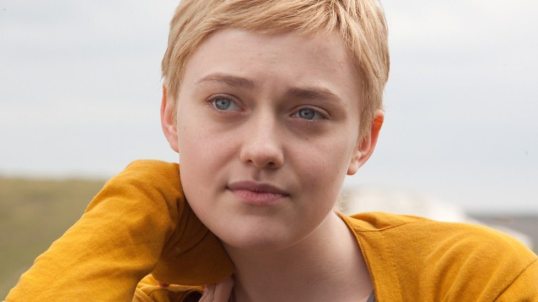When I was asked to take part in this year’s YA Shot Blog Tour, naturally I jumped at the chance – it’s always good fun to take part in community events like this. Then, when I was told the author I had been given I nearly exploded – JENNY DOWNHAM. JENNY FREAKING DOWNHAM. Author of the outstanding Unbecoming, You Against Me, and Before I Die, she’s one of the best YA novelists working in the UK today – if not the world. I was lucky enough to interview her, and you can read her answers below…
1. Hello Jenny! Thank you so much for agreeing to do this little interview – I’m a massive fan of your books so it’s a huge honour to be talking with you. Maybe we could start with you telling us a little about your latest book, Unbecoming?
Katie is seventeen and in love with someone whose identity she can’t reveal. Her mother Caroline, is uptight, worn out and about to find her past catching up with her. Katie’s grandmother, Mary, is back with the family after years of mysterious absence and ‘capable of anything,’ despite suffering from Alzheimer’s.
Every morning Mary runs away. She’s desperate to find something, says it’s imperative, but when questioned, can’t be more specific. Katie wants to know what Mary’s looking for. She also wants to know why her mother seems to detest Mary. What was the nature of their original estrangement? It makes Katie question everything she thought was true about her family.
So – three women at different stages of life bound together by a web of lies that only the youngest can untangle.
Oh, and it’s a love story too…
2. Unbecoming covers so many themes – from mental health to sexuality. Did you set out to cover so many topics, or did they evolve natural as the story progressed?
I don’t really think in terms of themes or topics when I begin a project, I’m more interested in characters and the stories they have to tell. I start with them and see where they lead me.
Pinter said a writer’s job is to ‘arrange and listen.’ He believed that characters arrive at their destination through their own impulses, rather than being manipulated to suit a pre-ordained plot. I love writing this way, although it can be time-consuming!
It’s usually about a year or so into a project that I begin to see what I might be writing about.
3. You’ve mentioned in interviews that a lot of Unbecoming drew from your own mother’s Alzheimer’s. Was it taxing to write about a subject so close to your heart, or did you find it cathartic to put it on the page?
Unbecoming is undoubtedly the most personal of my books. I have been a teenager, a mother and a carer and a lot of my own experiences are in there. But perhaps most importantly, yes – my own mother had Alzheimer’s and became very unwell and died while I was writing.
I found it very cathartic writing the book. I used to care for my mum during the day and then I’d go home and try to imagine what it might be like to ‘be’ her. I like to think that writing about the erosion of memory from a sufferer’s perspective made me a better daughter and carer in my mum’s last months.
4. You talk about some very intense subjects in all your books (Terminal illness in Before I Die, Sexual Assault in You Against Me) – Do you feel it’s important for YA literature to look at these ideas?
When I’m sitting inside the story writing it, I don’t think about themes or ideas, I just get drawn to interesting characters and dramatic situations. My job is to ensure the characters are emotionally truthful and then I find that they lift off the page and begin to tell their stories themselves.
As for what’s ‘important.’ I want to take readers on a journey, rather than give them a message to take away. Books can address difficult situations and confront social issues and help readers deal with real-life challenges. They can transport you, make you think, move you… the list is endless. I hope my readers shift allegiance over and over again with the characters in Unbecoming. I hope they empathise with teenage Mary in her claustrophobic 1950s town and teenage Katie with all her problems at school and home. I hope readers wonder, “What would I do if that were me?” And I hope, by the book’s end, the reader feels they’ve been somewhere and seen some things and that perhaps the world looks slightly different now.
5. YA has been accused of being “too dark” in recent years – do you think that’s true? Are there any subjects you don’t think teenagers and young adults should be reading about?
The LIVES of children and teens are full of tough things. It’s illusory to think we can keep them safe by only allowing them access to certain books. We need to find the joy among the difficult stuff, rather than ignoring the difficult stuff. I don’t think there’s a single subject that can’t be tackled in YA, so long as the author handles the material truthfully and with respect and takes account of all the complexities.
6. Do you have a favourite out of your characters?
I love them all after spending so much time with them – even the difficult ones! But perhaps Tessa in Before I Die has a particularly special place in my heart because her story doesn’t continue beyond the page. I’m very aware of her death date each year and I think how old she would be had she lived.
7. How does a new story start to unfold for you? Do you plan meticulously or start writing and see where it leads?
I never plan. When I’m in the middle of a project and every day I’m throwing thousands of words in the bin, I wish with all my heart that I could be the kind of writer who could follow a path. However, when the book is complete, I’m rather proud that I didn’t need one. At that point, I think it’s exactly the best kind of writing habit and fully resolve to do exactly the same for my next book!
8. Do you treat writing like a full time job? Is your writing day structured or do you only write when the mood takes you?
When I know where a project is going (so about 18 months in), I can write every day and be quite disciplined. Before that, while I’m still exploring, I idle my way in. Most of my writing in the early stage gets chucked, but I find I return again and again to the things that preoccupy and eventually I begin to see what the book might be about. It’s a slow process. And involves lots of coffee and day-dreaming.
9. Why do you write YA?
Because young people are on the cusp of adulthood and that interests me. A teen protagonist can do almost everything an adult can, but because they are boundaried by adult rules and expectations, they have to be far more creative to get what they want. It’s much more exciting to tell a story when there are lots of obstacles in the way.
Also, YA is a happening gig! There are so many books being published in the UK and Ireland that wouldn’t have seen the light of day in past years and would still not be published in many other places in the world. More readers are seeing their own lives represented within stories and this enables them to think not only, ‘What would I do if that happened to me?’ But also to think, ‘That is happening to me.’ Books can sometimes give you the very thing you need – the clue to solve a problem, the strength to keep going, the laughter that makes things more manageable and, perhaps most importantly – the feeling you’re not alone.
10. Who are some of your favourite authors, YA or otherwise?
As a young reader I devoured poetry, folk and fairy tales (Grimm, Andersen), and stories from the Arabian Nights and Ancient Greece. Now I love Raymond Carver, Donna Tartt, Denis Johnson, Ali Smith, Toni Morrison, Maggie O’Farrell, Tove Jansson, John Irving and Kate Atkinson amongst many others. I try to read as a writer might – with one eye and half my brain looking for just how this author make this character so believable, or that sentence so beautiful, or this story such a pageturner…
11. If they made a Jenny Downham action figure, what three accessories would it come with?
Assorted disguises, working wings and a mini espresso maker.
12. Can you tell us what you’re working on next?
I’ve started something new, but it’s very early days. All I have are voices at the moment and I have no idea where they’ll take me. If I had to sum it up so far I’d say it’s about a girl who is furious! She wants her life to be very different and is determined to make it happen.
And that’s your lot! I’d like to thank the YA Shot Team, Carolyn at David Fickling Books, and of course – Jenny herself, for helping put all this together.
You can pick up a copy of Unbecoming just here.



